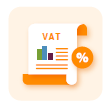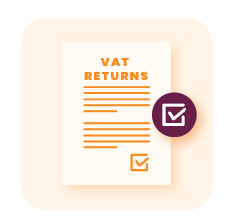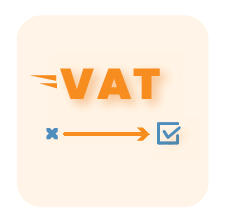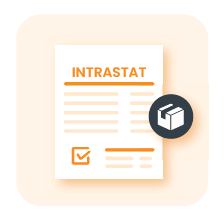E-Commerce & B2C Services in Portugal
On July 1, 2021, the EU introduced its e-Commerce VAT Package, replacing the existing distance selling regulations and expanding the Mini One Stop Shop (MOSS). This marked a major shift in VAT rules for business-to-consumer (B2C) transactions involving goods and services, affecting both EU imports and intra-EU trade.
The new package establishes a significantly lower pan-EU VAT threshold of EUR 10,000 (EUR 0 for businesses outside the EU), expanding VAT obligations for most businesses to a wider array of supplies.
Selling in Portugal?
B2C Services in Portugal
The basic principle for determining the location of service supply, as per Article 6 of the Portuguese VAT Code, applies when the service provider is based in Portugal and the customer is not a taxable entity (B2C transactions).
In B2B scenarios, the service supply location is Portugal if the services are rendered there.
However, there are exceptions to these general rules. Under specific circumstances, regardless of the service provider’s and customer’s locations or the customer’s tax status, some services are taxable in Portugal if they are consumed there.
For instance, in Portugal, the following services are typically taxable:
- Food and beverage services.
- Telecommunications and electronically supplied services, which will be discussed further in the next section.
- Intermediary services conducted in Portugal.
- Services granting access to cultural, sports, scientific, and artistic events.
- Services related to real estate in Portugal.
- Passenger transportation and short-term vehicle rentals in Portugal.
The expansion of digital services has led to significant transformations in global VAT regulations. Digital products or e-services, intangible goods or services sold online, come under this category.
According to EU law, any product that is stored, delivered, and used electronically is a digital product. This includes products or services provided through email, downloads from the Internet, or access via a website.
Examples include:
- E-books, images, movies, and videos, available through platforms like Shopify or third-party services such as Netflix, categorized as “Audio, visual, or audio-visual products” for tax purposes.
- Music available for download or streaming, purchased as MP3s or through platforms like SoundCloud or Spotify, typically classified in the audio category.
- Cloud-delivered software and services, including Software-as-a-Service (SaaS), Platform-as-a-Service (PaaS), and Infrastructure-as-a-Service (IaaS).
- Web-related services like website creation, web hosting, and Internet Service Providers (ISPs).
- Online advertising and affiliate marketing.
For digital, telecommunication, or broadcasting services in a business-to-business (B2B) setting, the place of supply is deemed to be where the recipient is located. In cases where neither the supplier nor the customer is established in Portugal, Polish VAT should not be applied.
Last Updated: 30/11/2023
Disclaimer
The information provided by Global VAT Compliance B.V. on this webpage is intended for general informational purposes only. Global VAT Compliance B.V. is not responsible for the accuracy of the information on these pages, and cannot be held liable for claims or losses deriving from the use of this information. If you wish to receive VAT related information please contact our experts at support@gvc.tax








